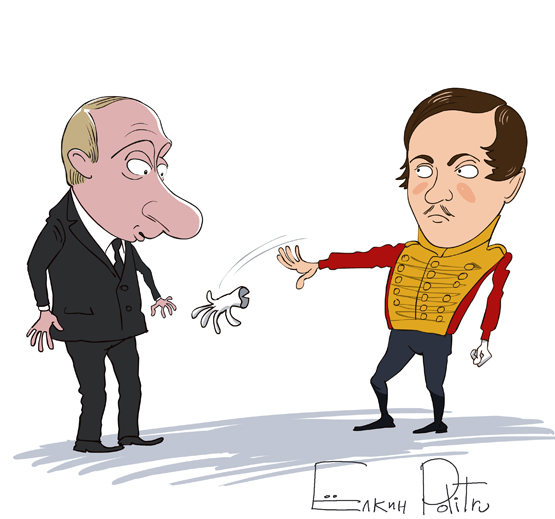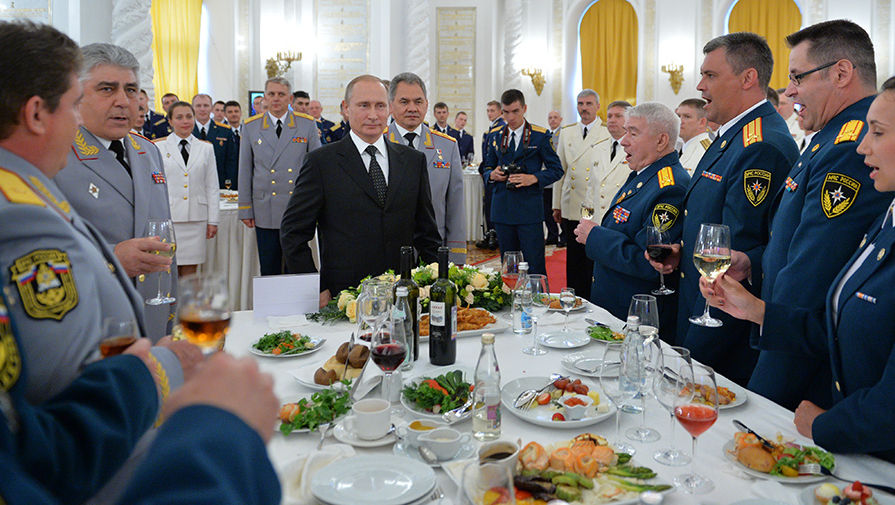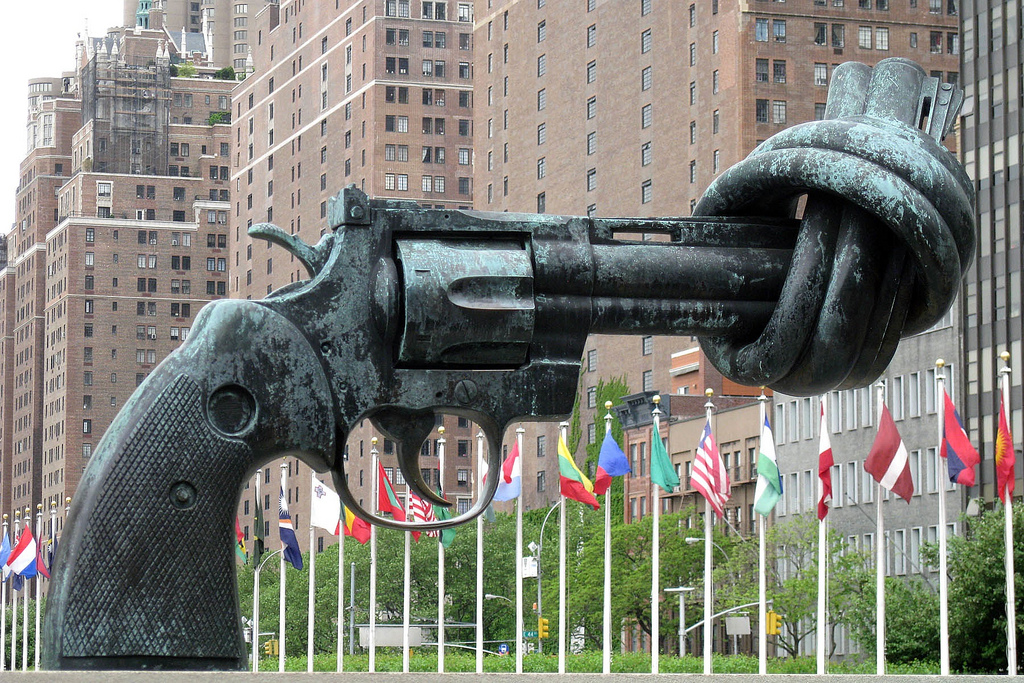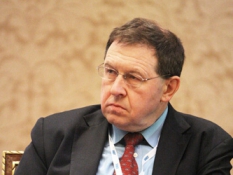Shame, pain, anger and simply confusion – conscientious Russians have had these feelings towards their country for at least half a year. These feelings have especially intensified in recent months, amid an imposed Russian veto on the establishment of an international tribunal to investigate the downed Boeing disaster over Donbas, the demonstrative destruction of the sanctioned groceries products in a country where 16% of the population lives below the poverty line – and all this against the background of growing hysteria and diatribes against Europe and the United States accusing them of all sins.
The Russian-Ukrainian war, it seems, has opened unprecedented depths of meanness. Even the Nazis at the time did not think before blaming allied armies liberating captured cities, that they were “Punishers, killing women and children” to disown their own soldiers and move to shift the blame of their own crimes to allies. In the Internet era, when alternative information is readily available, though in Russia, many Russians deliberately justify the crimes of the Kremlin authorities, enjoying their permissiveness and perceiving the tragedy and death as their victory.
Not surprisingly, on this background, many analysts have already expressed on the subject of the Russians as a people being characterized with irresponsibility, aggression, the search for external enemies, imperial expansion, disregard for human life and moral principles. The expression of “spiritual bonds” is perceived as a caricature, and the special considerations of “spirituality” of Russians seem a myth concealing the lack of basic humanity.
Yet the situation is not as straightforward as it seems. In my opinion, in the classical system of values of Russians they have the qualities that in the moral scale are higher than the basic principles of the average European or American. I want to stress: this is not the corrupt state of Russian society,but the classic “matrix” forming the basis of mentality which does not depend on the current political situation.
Thus, in Russian culture (especially if we take classic literature), much more than in the West, they sought self-sacrifice and extreme forms of mutual assistance with a special devotion to the increased value of friendship, with sometimes sacralised social networks (“their”, “brothers”, “associates “). Despite the active development of the values of consumerism among the young generation of Russians, classical literature and philosophy are still included in the Russian educational system, telling that mercantilism is selfish and dangerous, while process of humanization includes a discussion of the meaning of life and man’s place in the world.
The Western hero – often Dreiser’s “financier, titanium and Stoic”, the man in the process of formation and development of personal potential is on the path to personal success. The Russian character – a suffering thinker who can be eithert a repentant killer (Raskolnikov), a dreamy slacker (Oblomov), or a man of honor like Pushkin’s Grinyov. The Englishwoman Jane Eyre had modest dreams of personal happiness. The pious Sonia Marmeladova decides to go into prostitution in order to save starving children and, returning from another customer, reads an inspiring biblical scene of the resurrection of Lazarus.
The difference in literary archetypes are still manifested in the mentality. Among the talented Russians, the percentage of “can-do” people is significantly lower than among the talented Americans. Such modesty is likely not an advantage in the everyday sense of the word, but is much closer to a strictly Christian ideal than the ability of self-promotion, even if it is dictated by self-esteem. Most Russians still seem unacceptable to sue people, individualism is condemned as a sin. The question arises: how did it happen that a culture that sets such a high moral bar, form a society, for the most part endorsing crime, murder, lying, stealing, calmly relating to corruption and tyranny of those who hate and despise the other nations?
In my opinion, the main reason for this paradox is how, and by whom and for whom this very high standard was set. Russians often forget that the fathers of their culture, the creators of the famous literary images were once persecuted, passed the king’s penal servitude and exile, while those living in the XX century, endured torture and inhuman conditions of the GULAG. People who didn’t break in this hell have learned from their experience an example of a feat unrepeatable by a common man.
The tragedy of the Russian intelligentsia, the best and most advanced of its representatives, is that they have always been persecuted, from Pushkin to Pasternak, from Lermontov to Sakharov. Romantic troubadours of the feats forget that heroism – the extreme, extreme condition of the person, does not pass for a man without a trace. There is a controversial, but precise phrase: “Heroes are needed in times of danger, in all other times they are dangerous.” To paraphrase it, we can say: “Heroes are needed in times of misfortune, in all other times they are miserable.”
The Feat – always in anguish – is compensation for ohers’ meanness and evil. Russians love to blame the West of “weakness”, citing as examples the arguments for heroism of the Russian people. But without disputing these examples, I want to remind my compatriots: to show off here, in essence, is nothing. A normal society should not generate heroes. Heroism is born in conditions of persecution, repression, betrayal and cowardice, tempered in persecution, torture, crystallized, learning to love and to fight not because of, but in spite of. A feat is a sign of an unhealthy society, the terrible conditions prevailing in it, is an extremely high level of evil. Heroism is an exceptional state, a real hero is not a movie superhero, but, first and foremost, an injured, disabled person. The personal example he sets is an example of pain and hardship, sacrifice, this is the lot of the few.
Therein lies the tragedy of Russian culture. The patterns of behaviour were created by persecuted, mutilated people who have reached peaks in the moral field, inaccessible to a commoner. The feat could only be repeated by the same driven seekers of truth that will inevitably appear in Russia in any era. Russian culture, a given pattern of high morality, paid little attention to the standards of behaviour of an ordinary person. The Russian mentality has not developed the concept of the norm, but it worked out perfectly the concept of holiness. But never in any society, in any country, can holiness become the norm for most – it is simply contrary to human nature.
That is why Western philosophers, not engaging in the understanding of the extreme forms of feats, created a sample of a normal human: let not the holy – but law-abiding, though not extremely sacrificial – but humane, even pragmatic – but limited in moral norms. Russian culture has failed to provide a coherent model of behaviour for the layman, because 90% of the people are not capable of heroism and holiness and are in a vacuum, with no clear patterns of behaviour, even without basic constraints.
From the curriculum they learned that the Russians are characterized with high spiritual needs, but they are unable to overcome the high spiritual bar. Indeed, what kind of love for one’s neighbour can speak in a society that does not even have a culture of respect for their neighbour? What sacrifice is possible where people not only do not want to share what’s theirs, but quietly steal what is someone else’s, and consider corruption the norm, being convinced to “steal everything”?
The moral standard created by the few for the few, for the majority became just a form of “national pride”, or more simply – a cover for chauvinistic sentiments and a justification their crimes. Russian society throughout its history is a bi-polar field collision of heroic minorities and the morally depraved indifference of the majority. It is a collision of heroism and villainy. As long as Russian culture does not work out samples of the “golden mean”, successfully implemented in the West, the history of Russia is doomed to repeat.
Kseniya Kirillova, journalist
http://www.svoboda.org/content/article/27197355.html





